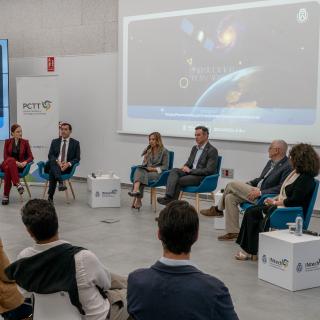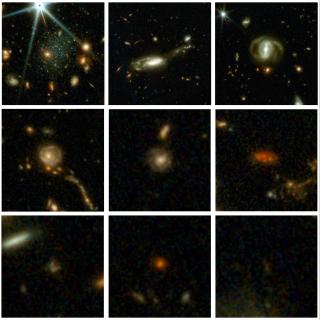It may interest you
-
 Ultra-faint dwarf galaxies, among the tiniest and faintest galaxies known, may hold the key to understanding one of the Universe’s biggest mysteries: the true nature of dark matter. A new study reveals that even a single collision between dark matter particles every 10 billion years — roughly the age of the Universe — is enough to explain the dark matter cores observed in these small systems. These galaxies, which contain only a few thousand stars, are dominated by dark matter and have relatively simple evolutionary histories. That makes them ideal cosmic laboratories for testing theoriesAdvertised on
Ultra-faint dwarf galaxies, among the tiniest and faintest galaxies known, may hold the key to understanding one of the Universe’s biggest mysteries: the true nature of dark matter. A new study reveals that even a single collision between dark matter particles every 10 billion years — roughly the age of the Universe — is enough to explain the dark matter cores observed in these small systems. These galaxies, which contain only a few thousand stars, are dominated by dark matter and have relatively simple evolutionary histories. That makes them ideal cosmic laboratories for testing theoriesAdvertised on -
 El Cabildo y el IAC fabricarán la primera constelación de satélites canaria para observar y proteger el Archipiélago desde el espacioAdvertised on
El Cabildo y el IAC fabricarán la primera constelación de satélites canaria para observar y proteger el Archipiélago desde el espacioAdvertised on -
 The largest observation program of the James Webb Space Telescope (JWST) has released its data: nearly 800,000 galaxies observed in unprecedented detail. COSMOS-Web thus offers the most extensive and deepest view of the universe ever obtained. In this data release, the Instituto de Astrofísica de Canarias (IAC) has played a key role, performing the morphological classification of more than half a million galaxies using neural networks, a crucial contribution to explore how galaxies form and evolve over cosmic time. COSMOS-Web was the largest General Observer program selected for Cycle 1 ofAdvertised on
The largest observation program of the James Webb Space Telescope (JWST) has released its data: nearly 800,000 galaxies observed in unprecedented detail. COSMOS-Web thus offers the most extensive and deepest view of the universe ever obtained. In this data release, the Instituto de Astrofísica de Canarias (IAC) has played a key role, performing the morphological classification of more than half a million galaxies using neural networks, a crucial contribution to explore how galaxies form and evolve over cosmic time. COSMOS-Web was the largest General Observer program selected for Cycle 1 ofAdvertised on
